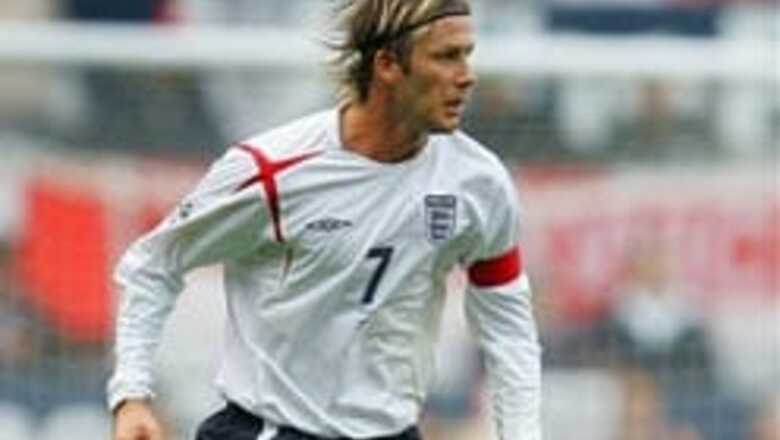
views
London: The coach is leaving after the tournament. The team's most dangerous player has a broken foot and is a long shot to play. The critics are ready to pounce.
Just another typical World Cup buildup for England.
The country that invented soccer and has one of the best leagues in the world has won the World Cup just once, when it hosted the event in 1966.
England was eliminated in the quarterfinals of the 2002 World Cup and the 2004 European Championship. Anything less than reaching the semifinals in Germany would be seen as a major failure.
"I always said we have to do better than we did in Japan (in 2002), and that was the quarterfinals, but I also said if we had the players who are fit I think we have a squad who can win the World Cup," coach Sven-Goran Eriksson said.
"I think we are that good. I believe it and the important thing is the players believe it. They believe it much more than four years ago."
That assessment came before striker Wayne Rooney, England's leading player, broke his right foot playing for Manchester United on April 29. He's doubtful for the World Cup; although Eriksson held out hope he could be back for the latter stages of the tournament.
Whatever happens, Eriksson won't be around after the championship. After a stormy five-year spell as England's first foreign coach, the Swede is stepping down two years before the end of his contract.
Sensationalist coverage in the British tabloids, which exposed Eriksson's romantic affairs and tricked him into talking to an undercover reporter posing as an Arab sheikh, hastened his early departure.
Portugal coach Luiz Felipe Scolari turned down an offer to replace Eriksson, leaving Middlesbrough's Steve McClaren as the big favorite to get the job.
Eriksson is glad to be out of the spotlight amid speculation over his successor.
PAGE_BREAK
This could be the last World Cup for captain David Beckham, Gary Neville and Sol Campbell, who are all over 30 years old.
Striker Michael Owen is getting back to full fitness after breaking a bone in his right foot playing for Newcastle on December 31. Arsenal defenders Ashley Cole and Campbell could struggle to make the first team after being injured for most of the domestic season.
Other injury concerns include Jermaine Jenas (shin), Luke Young (ankle) and Ledley King (foot), while Jonathan Woodgate is unlikely to recover from a thigh injury.
Eriksson will name a provisional squad of 27 players on Monday, with the final 23-man list supplied to FIFA on May 15.
England opens against Paraguay on June 10 in Frankfurt, and then plays Trinidad and Tobago in Nuremberg on June 15 and Sweden in Cologne on June 20. The Sweden match is expected to determine who tops Group B.
England has beaten Paraguay in two previous meetings, including at the 1986 World Cup, and has never played World Cup rookie Trinidad and Tobago.
England hasn't beaten Sweden in 11 matches since 1968. Eriksson was in charge when England drew 1-1 with Sweden at the 2002 World Cup.
If England advances to the next stage, it will meet one of the top two teams from Group A, which contains Germany, Poland, Ecuador and Costa Rica. England has a long rivalry with Germany, and it beat Poland twice in qualifying for this World Cup.
England's potential quarterfinal opponents include Portugal, longtime rival Argentina and two-time World Cup runner-up the Netherlands. Brazil could await them in the semifinals.
Not since 1970 has so much been expected of England. The 1970 team was regarded as more talented than the 1966 World Cup-winning side but lost to West Germany in the quarterfinals.
England next came close in 1990 when it unexpectedly reached the semifinals, losing on penalties to West Germany. England failed to qualify in 1974, '78 and '94, and lost in the second round at the 1998 World Cup in France.















Comments
0 comment